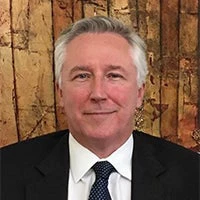In May 2011 a diverse and inclusive group of procurement practitioners from around the world—representing countries ranging from middle-income countries to fragile states, as well as development partners and civil society organizations—met in Cuzco, Peru, to discuss and agree on the messages to be sent to the Fourth High Level Forum on Aid Effectiveness (HLF4) in Busan. They signed a declaration providing important inputs to the Effective Institutions and Country Systems themes that would be discussed in Busan. Participants endorsed an important strategic direction: to increase political ownership of procurement reforms and maintain an action-oriented international platform for knowledge sharing after Busan. They also agreed that their common goal—to strengthen and use country systems to the maximum extent possible—cannot realistically be an “all or nothing” proposition; rather, it would require a sequenced and measured effort to increase capacity, greater focus on monitoring performance, and an appropriate balance between fiduciary and development objectives.
Cuzco represented the culmination of an exciting journey that helped raise awareness of the importance of procurement for development effectiveness. The backdrop of this work is a changing world, where new development paradigms are emerging and expectations for results are growing exponentially. Procurement is increasingly seen as a policy and public sector management tool to help achieve economic and social development objectives. On the road to Busan, tools were developed and tested, knowledge shared, and reforms implemented. Many countries are launching second-generation reforms aimed at engendering a culture of transparency and accountability for results. This evolution includes the strategic use of technology; a greater focus on regulated principles and adherence to standards, rather than strict compliance with detailed procedures; and a drive to achieve measurable performance outcomes. All of this involves behavior changes, as well as training and professionalization of procurement staff.
In today’s environment of global financial pressures and economic crisis, the use of public resources to achieve outcomes for the community is more than ever at the core of aid effectiveness. The need to do more and better with less places procurement at the center of this agenda. Linking the debate on country systems to social and economic outcomes, under a best-fit-for-purpose and risk management framework, will help achieve real progress on the commitments undertaken in the Paris Declaration and Accra Agenda for Action. While many countries have advanced significantly in this direction, further progress is still needed. Elevating this discussion to HLF4 provides a unique opportunity to garner support and deepen efforts to strengthen and use country systems, whenever possible and in a sequenced and pragmatic manner in the context of a broader country-led approach to institutional development. This holistic agenda includes integration with other public sector reforms that affect the performance of the procurement system, empowering of civil society to advocate for results-driven reforms, and partnerships to create an enabling environment for increased accountability and trust.


Join the Conversation